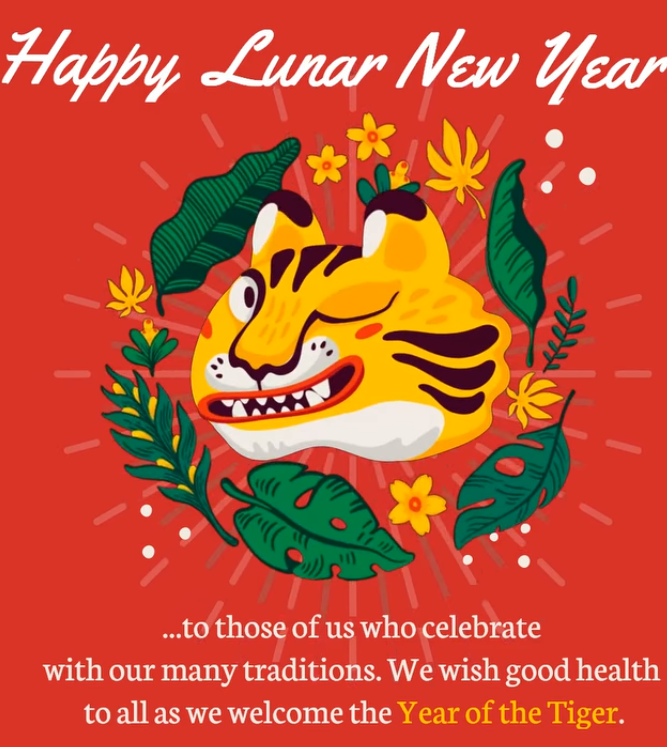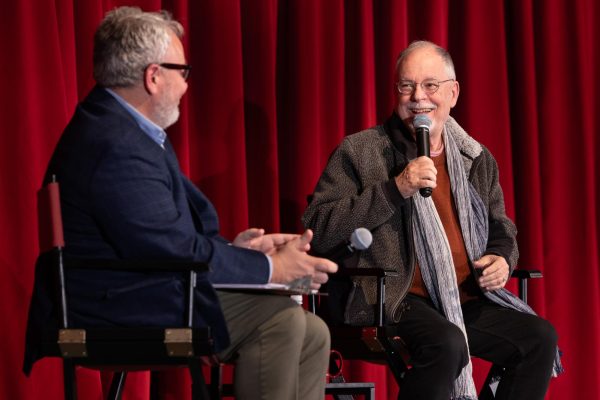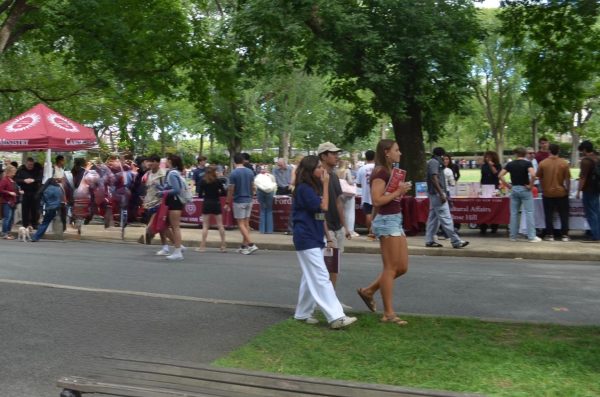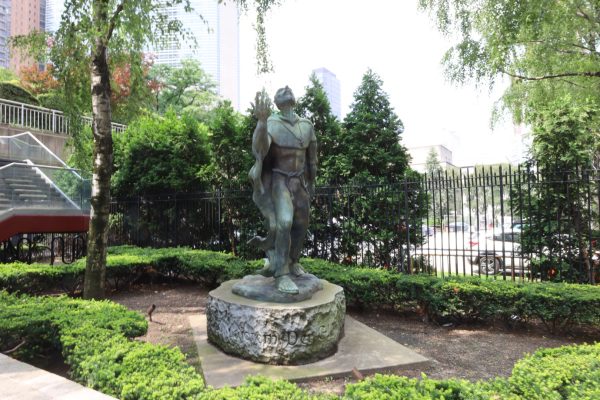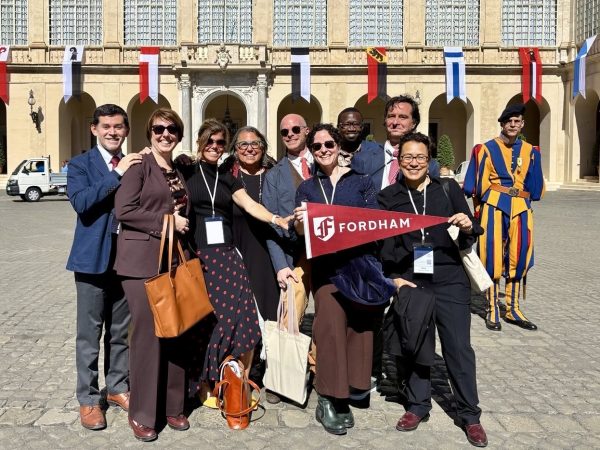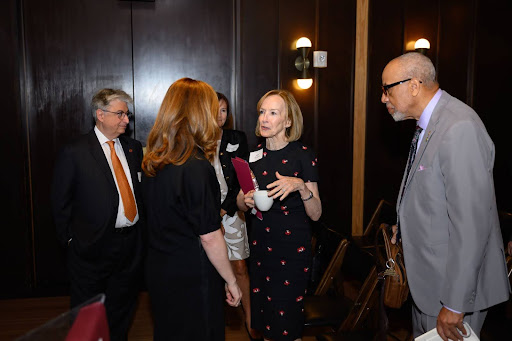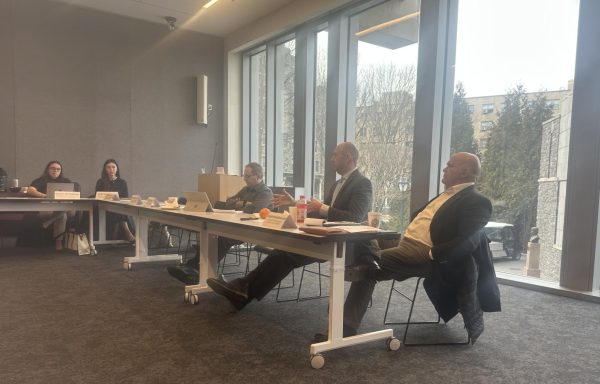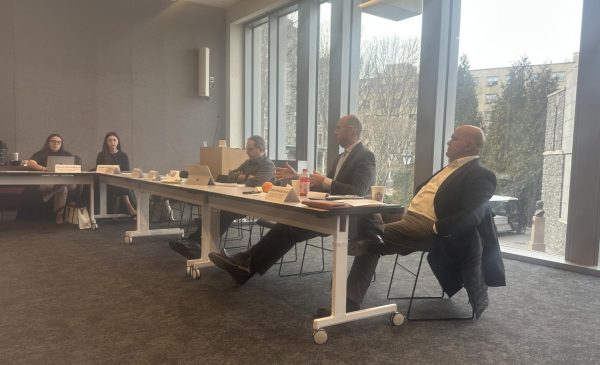Office of Multicultural Affairs Hosts Lunar New Year
On Feb. 1, 2022, Lunar New Year was celebrated across many different Asian cultures. Fordham’s Office of Multicultural Affairs (OMA) hosted events to commemorate and celebrate this important holiday throughout the week.
“Lunar New Year is such a grand celebration of the first new moon of the lunar calendar. Many Asian countries celebrate in many different ways, but the ultimate significance is new beginnings, bringing in the good, honoring ancestors, and being hopeful for a good harvest,” said Marie Castro, graduate intern in the Office of Multicultural Affairs.
This event marks the passing from the year of the Ox to the year of the Tiger. Lunar New Year holds great significance to many Asian countries and cultures. OMA has found that honoring holidays like this at Fordham holds great meaning to students who celebrate them.“A lot of the Asian countries celebrate the holiday, [so] tradition is so vital to carry on. This celebration brings together families and friends and a lot of specific customs are followed in hope to start the new year right and with an abundance of luck,” said Castro.
According to Arthur Ze An Liu, FCRH ’23, cultural programming coordinator of the Asian American & Pacific Islander (AAPI) committee at Rose Hill, president of ACE and Ascend, Lunar New Year is very important to the cultures that celebrate it.
“Lunar New Year is perhaps the most significant cultural event or holiday for the cultures that celebrate it. Its importance can be compared to the Thanksgiving and Christmas holidays for Americans,” said Liu.
OMA has worked closely with its AAPI committee to plan this week of events. The week of celebration began with the committee hosting a tabling event in McGinley lobby, where they passed out chocolate coins in red envelopes. On Tuesday, they hosted a lantern-making and goldfish ornament folding event. The committee organized the showing of the movie, “The Joy Luck Club” (1993). The film documents four Chinese-American women’s journeys with their daughters.
On Friday, the AAPI committee intended to conclude their week with a trip to the New World Mall food court in Flushings, Queens. However, because of Fordham’s emergency campus closure due to weather circumstances on Feb. 4, the committee plans to reschedule the excursion.
In addition to the in-person events, the AAPI committee was active on its social media. It helped spread information to students about Lunar New Year and its significance. The committee posted on Instagram detailing what Lunar New Year is and its importance.The AAPI committee also informed students about traditional clothing worn by people in different countries during the Lunar New Year celebrations. After the week of Lunar New Year celebrations had been concluded, AAPI posted information about what type of celebrations would be considered appreciation of the culture and which would be considered appropriation.OMA found that hosting these events and celebrating the Lunar New Year in this fashion has been highly impactful to Fordham’s Asian student community.
“The Lunar New Year programming we host with our AAPI committee has allowed students to feel seen. For students who are away from home, celebrating among friends and people with similar identities to them creates a sense of belonging and a home away from home,” said Castro.
According to Liu, celebrating with the Fordham community brings him joy despite being unable to celebrate with his family at home.
“At Fordham, I enjoyed tabling events for the AAPI committee and hosting a Lunar New Year meeting for Asian Cultural Exchange (ACE). These events allow me to share and celebrate my cultural traditions with the greater Fordham community, which brings me great joy and satisfaction. If I cannot be at home with my family, I might as well try to share my happiness with my Fordham peers,” said Liu.Liu grew up in Hong Kong and is half-Malaysian Chinese and half-Hong Kongese. According to Liu, in Hong Kong, there were many Lunar New Year celebrations that he looked forward to every year.
“When I was still living with my family in Hong Kong, I always looked forward to the family reunion dinner which would occur on Lunar New Year’s Eve. I also enjoyed watching the Lion Dance and setting off firecrackers, both of which are supposed to ward off evil spirits and bring you luck,” said Liu.
OMA invites students of all backgrounds to celebrate and learn about the Lunar New Year.
“If you share an identity outside of AAPI, you can still participate in the fun and education of these programs. So much of these traditions and celebrations can resonate with people of other cultures and identities, and it’s a great way to learn something new,” said Castro.
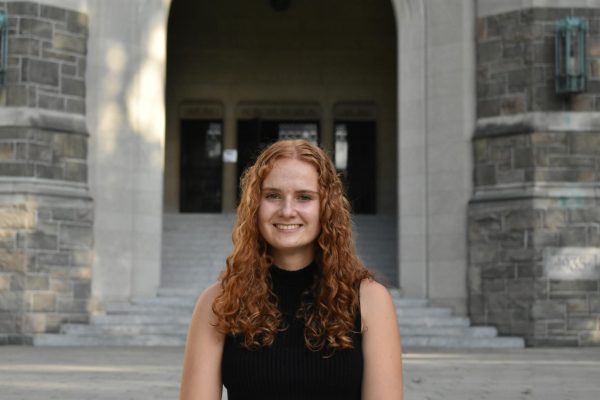
Isabel Danzis is a senior from Bethesda, Md. She is double majoring in journalism and digital technologies and emerging media. The Ram has been a very...



































































































































































































